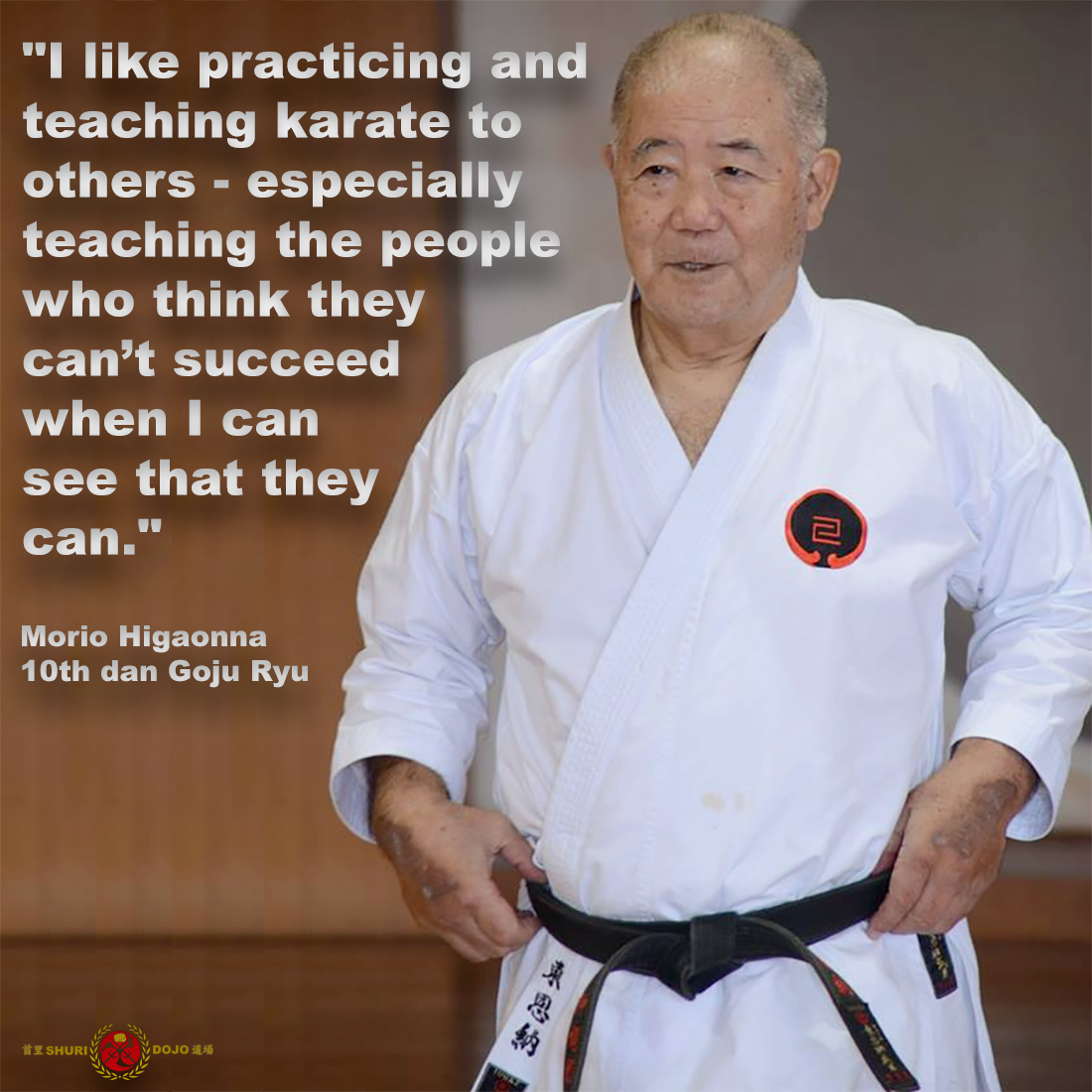
“I like practicing and teaching karate to others – especially teaching the people who think they can’t succeed when I can see that they can.” – Morio Higaonna 10th dan Goju Ryu
.
Is there a blind adherence to tradition in the martial arts?
.
In Okinawa, the traditional martial arts still have their cultural and social place. With a cultural heritage and social values, these then are the core of traditional martial arts; that which must be protected and saved from the modern world. But some have embraced the modern world and its new sporting heritage.
.
There remain traditional masters who stick to traditional training methods (and timeframes) because they believe their system creates a morally sound, responsible, mentally honed individual.
.
For many traditional Eastern martial arts teachers, the training is a process to weed out the unready, because the true goal is developing and cultivating a persons character, and the refined behavior that should result from strong traditional karate training. For them, Karate is not a just fighting art, but also a path toward being the “right” person for society.
.
To skip out on part of that process means you will never reach ‘the’ goal. Perhaps this helps to explain why traditional masters have been very slow to take to more modern training methods, and also why the traditionalists tend to scoff at MMA fighters. If you can see it from their perspective, fighters are akin to barbarians playing with something they don’t understand.
.
But at what point does tradition get in the way of common sense? I personally feel that the true masters of martial arts were mostly great men. I know that the techniques that they created were to address the reality of contemporary combat. But let’s face it, the reality of modern fighting is much different. I am sure that the masters of the old martial arts were very formidable, and that their techniques were more than adequate for their time. But in modern times, we have developed technology and strategies that have moved us beyond those old ways. We have built on top of those old methods to develop techniques that are more refined, and in some ways superior to our predecessors.
.
The traditional martial arts, the demise of which is lamented by these masters, was never simply a set of self-defense skills. Rather it was a means of conveying a range of values and relationships that supported a social world that has now vanished, in part, due to economic change.
.
That is NOT to say that there is no merit in the old ways. I am a huge believer in certain traditions. I believe that honor, discipline, courage, integrity and loyalty are parts of the martial arts that should remain unchanged and forever a part of out training. Honoring historical roots by studying them in-depth, not in order to acquire knowledge for knowledge’s sake, but to ensure total relevance to the modern world and to ensure the growth of the art.
.
Karate has a strong history that all karate-ka, regardless of preferred approach, should be very proud of. However, I would say that looking to the past only has value when we use that information to take us forward into the future…… ![]()
![]()
.
“Change does not change tradition. It strengthens it. Change is a challenge and an opportunity, not a threat.” – Prince Philip
.
.
![]() Photo credit: IOGKF: Morio Higaonna quote: Part2 Pictures, LLC. – Also with thanks to Iain Abernethy
Photo credit: IOGKF: Morio Higaonna quote: Part2 Pictures, LLC. – Also with thanks to Iain Abernethy
.
